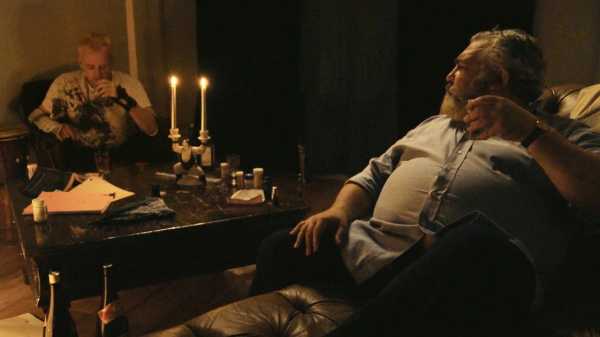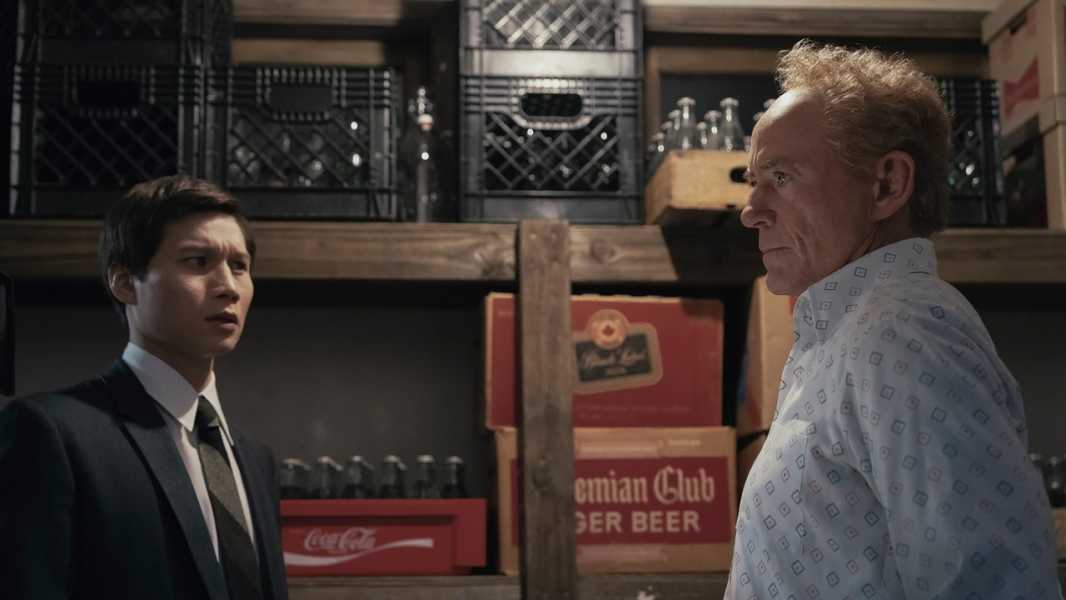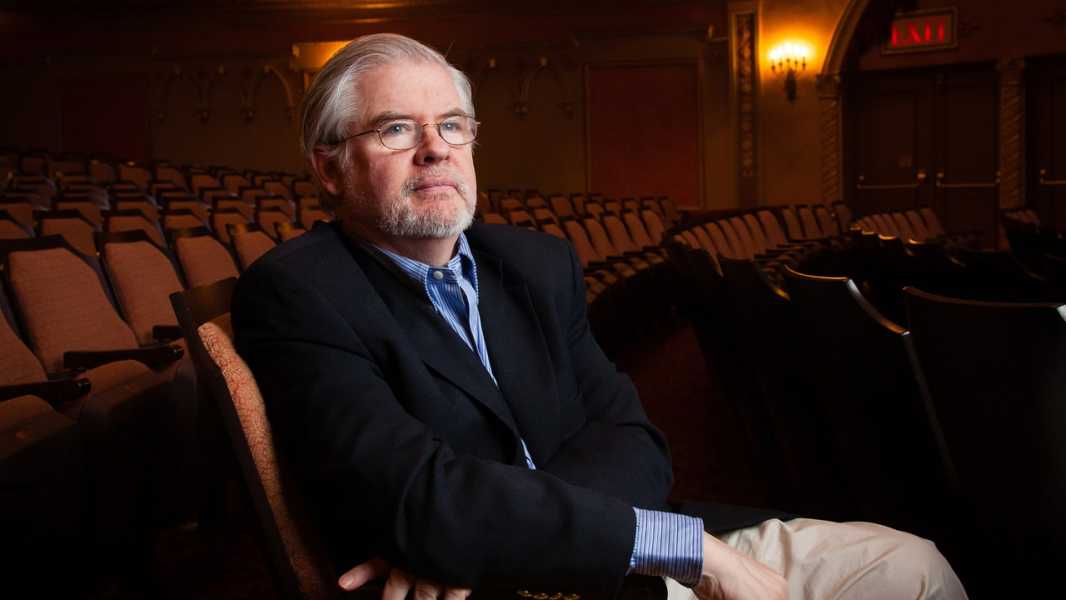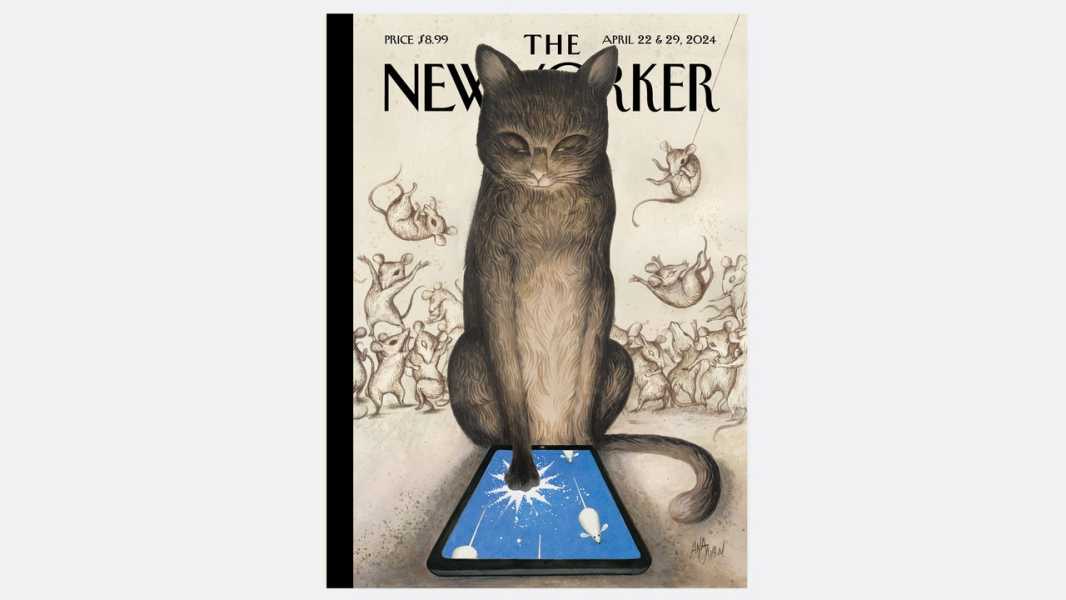
It’s only the second week of January, but the year has already yielded a performance that is likely to be one of my personal leading candidates for Best Supporting Actor: Theodore Bouloukos in “Jobe’z World,” a remarkable new movie, directed by Michael M. Bilandic, which opens Friday at Cinema Village (and, to my dismay, isn’t also available to stream). Bouloukos is a secret weapon of independent cinema; he was on my best-of list for 2013, for his supporting role in Nathan Silver’s feature “Soft in the Head,” in which he played a group-home resident who dominates the facility’s atmosphere with his smoldering silence and explosive rage. I’ve been impatient to see him in another role of a similar amplitude; though he has been in many movies since then, none of them has (as far as I know) had a significant U.S. release.
“Jobe’z World” is a fantasy, albeit one filmed on location in downtown Manhattan and rooted in workaday frustrations. Its protagonist, Jobe (Jason Grisell), is (as the name suggests) a New York Everyman. Thirty-plus and at a loose end, he works as a drug courier (a “molly-and-pill guy”) for a strangely corporate-like supplier, zipping through the streets on Rollerblades and delivering wares to clients at various points on the down-and-out spectrum, including an elderly, gravel-voiced military fanatic (Stephen Payne) and a young, broke night fisherman (Owen Kline). Their interactions are self-consciously grunge-poetic and flashily downbeat. They are punctuated by Jobe’s mordant voice-over ruminations and a soundtrack adorned with low-frequency sonic magma, suggesting interference from the beyond. (The sound designer is Neil Benezra.) Among the recurring riffs in the movie’s chat are references to a cinematic idol—a fictitious one, an actor named Royce David Leslie, whose work stands as a sort of ideal to the denizens of Jobe’s nocturnal rounds. Then fate intervenes. Just as Jobe is preparing for a trip to Kennedy Airport, to pick up his mother, he’s summoned to make an urgent and delicate delivery, of a “special recipe” of mind-altering substances, to none other than Royce himself.
The actor is played by Bouloukos, who delivers an Orson Welles reincarnation, playing an orotund aesthete of outsized refinement, worthy to stand alongside John Huston’s version of Welles in Welles’s own recently and belatedly completed film from the nineteen-seventies, “The Other Side of the Wind.” With a sly drawl and a gleam in his eye, Bouloukos conjures the sardonic bonhomie and self-deluding display of sincerity of a colossus forced to keep a foot on the ground while his head inhabits realms of celestial glory. Royce’s Falstaffian magnanimity, as he raises his eyes to the heights and rumbles forth (“All I want is one role that just seals my legacy and determines my epitaph—you know?”), gets the better of Jobe, who abandons his professional demeanor and lets Royce in on his own dreams of glory. But, when Royce is reported dead after taking the drug Jobe delivered, Jobe instantly becomes a wanted man. His petty vanities and frustrations morph into a paranoid and panic-wracked (if still loopily sardonic) crime drama.
“Jobe’z World” was obviously made on a shoestring; nonetheless, it features an independent-cinema all-star team of performers and crew members who’ve worked on a large and loosely linked series of films over the past decade, including the editor Zach Clark (who’s also one of the best young directors, notably, of “Little Sister”), the casting director Eleonore Hendricks, and the actors Keith Poulson, Jason Giampietro, Kate Lyn Sheil, and Lindsay Burdge. The film’s crew is headed by the cinematographer Sean Price Williams, who also acts in the film, and who has shot some of the most notable independent films of recent years, including all of Alex Ross Perry’s features and the Safdie brothers’ “Heaven Knows What” and “Good Time.” These are artists working nearly off the radar, whose talent and imagination are worthy to stand with the work of anyone in the Hollywood spotlight—and whose collaborations make today’s independent world something like a grassroots rekindling of the group spirit of the classic-era studio system, minus its pressures from above.
The kinetic vitality of Williams’s camera work—which generates chaotic moods and tones through manipulations of luridly colored lighting, yields boldly contrasted low-light images, and sketches physical action with a painterly expressivity—elevates many of the movie’s moments beyond its single, thin strand of drama and the confines of its tone. That tone is something of a commonplace in some lesser low-budget movies—it leans on the edge of satire, distending but not puncturing the membrane of recognizability, and virtually places ironic air quotes around the action, the actors’ manner, and the dialogue. Such a tone is designed to invite bold directorial choices that few filmmakers actually hazard—interjections and digressions that subordinate behavioral unity to revelations of inner life and social context. Yet in “Jobe’z World” many of the departures from daily familiarities are minor, fussy, and stepwise rather than daringly disjunctive.
It’s telling that the ecstatic flights of imagination that render Bilandic’s film memorable are ones that have to do with movies. They include two cinephiles’ howlingly parodistic barroom discussion about Royce’s films (“Yellow Thunder,” “All Summer Blues,” “Blue Lava”) and their own fandom. Above all, there are Bouloukos’s own scenes, which include a video of Royce that goes viral and a cosmic-metaphysical fantasy that features ultra-low-budget but highly imaginative special effects, which, with their simple but fascinating blend of motion and abstraction, offer more giddy delight and troubling wonder than anything in the billionaire boys’ club of most recent superhero movies.
Bilandic falls somewhere on the directorial spectrum near the Hollywood director Joseph Pevney—a passionate artist whose impulses are often confined and distorted by convention, until, in the synergy between his work and actors of originality, they burst forth gloriously, if intermittently. (Curiously, the artistically motivated, director-centered world of independent filmmaking also risks falling into convenient boxes of convention, reminiscent of the ones that Hollywood films of the studio era were forced into.) “Jobe’z World” is, to say the least, an uneven film; more than half of its sixty-seven-minute span ranges from cutesy to negligible. Yet its inspirations, almost all of which are centered on Bouloukos’s performance, redeem its longueurs and virtually blast them off the screen and out of memory.
Sourse: newyorker.com







